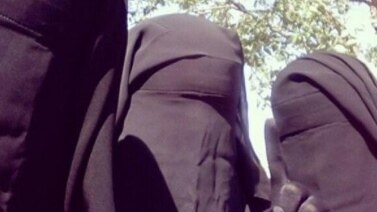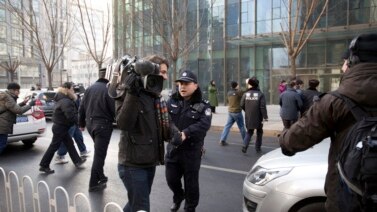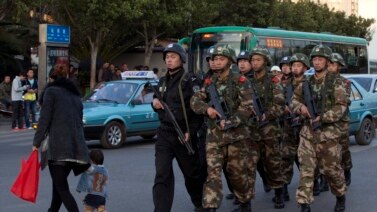Many wealthy people from around the world are buying small, but pricey homes in New York City. Foreign buyers are helping to fuel a rise in condominium apartment prices. A condominium in Manhattan can cost millions of dollars. But such homes are often less costly compared to other big cities.
Canadian, Chinese and Russian buyers are said to make up the majority of non-U.S. investors in Manhattan’s pricey neighborhoods. Some paid tens of millions of dollars or more for a condo they have never even visited.
A building called “One57” is the tallest residential structure in the Americas. It has 90 floors. On the upper floors, people can see New York’s famous Central Park. Work on the building is not yet finished. But many of the apartments already have sold. Two of them reportedly sold for more than $90 million each.
Jeannie Woodbrey is the sales director for One57. She describes what she calls one of its smallest apartments. It costs almost $19 million.
“The ceilings obviously are 10 foot seven (inches) (3.17 meters). This is our lowest ceiling height, and Christian de Portzamparc, who was the exterior architect, designed walls of glass, so you really have no break in the views whatsoever, and that’s really the drama in all of our apartments.”
About half of the building’s apartment owners are from outside the United States.
Nikki Field and Daniel Chang work for Sotheby’s International Realty, which sells homes worldwide. They often travel to China to meet people who might like to buy American properties.
(Field): Most all of them were drawn to the United States. Why was that?”
(Chang): “Well I think the U.S. is, has really a stable political environment. It’s kind of like put(ting) a safe-deposit box in (the) city that it will pay for itself, it will appreciate, and they don’t have to worry about any property being confiscated.”
One57 will soon be the second-tallest residential building in the western hemisphere. Another, bigger apartment building is rising near Central Park. Homes there will cost more than those in One57. Daniel Chang says he believes people from China will really like the new building.
“The first thing (that) come(s) to their mind is Central Park. So, they, most of my clients want Central Park views, and a building surrounding Central Park.”
At one time, more Russians than Chinese bought property in Manhattan. But that has changed recently. Now, only Canadian purchasers buy more homes in New York City than Chinese. Diane Francis is both a U.S. and Canadian citizen; she lives part of the time in New York. She says foreign buyers are good for the city.
“We’re the solution, not the problem, to your economic issues, to your economic inequality. We employ people, we spend billions, we invest here.”
Ms. Francis says wealthy people are buying high-end apartments in New York both as an investment and as a way to keep their money safe. She says some Chinese may be worried about the country’s new anti-corruption policies.
“Some of them are fleeing regimes that they’re concerned about destabilizing, or currencies they’re worried about. Or in the case of China -- and I’m not saying this, I don’t wanna besmirch all the Chinese that are coming to New York and will come to New York and the United States to buy real estate -- but there isa crackdown on corruption in China and a lot of people who have hidden away money that they haven’t told the government about wanna get it out. And they're getting it out by buying a condo here in someone else's name.”
Critics say the high-priced apartments are a sign of growing inequality. Many of the apartments are unoccupied most of the year. Because the owners gained their wealth outside the United States, they do not pay taxes on their income. And government officials wanting to bring wealthy people to the city sometimes lower property taxes on the apartments. For example, a home at One57 listed at $36 million will be taxed less than $500 a month.
Even defenders agree the rise in high-end homes is helping to drive up housing prices throughout the city. This makes New York too pricey for those who are not rich.
I’m Christopher Cruise.
This report was based on a story by VOA reporter Carolyn Weaver





